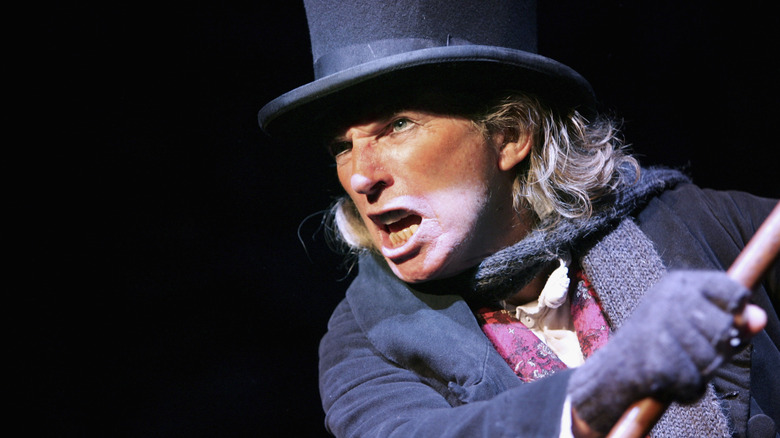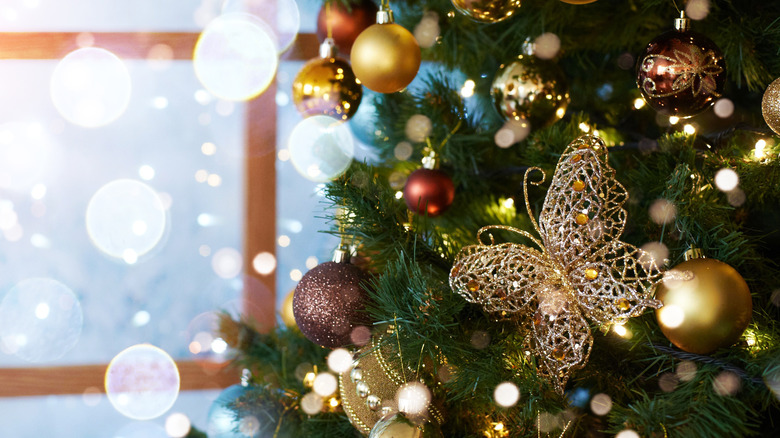The Reason New England Once Banned Christmas
For a joyous holiday, Christmas inspires quite a few malcontents. Take Ebenezer Scrooge from "A Christmas Carol" and his various incarnations such as Scrooge McDuck ("Mickey's Christmas Carol," 1983), Cosmo Spacely ("A Jetson's Christmas Carol," 1985), Frank Cross (featuring actor Bill Murray in "Scrooged," 1988), and Ebbie (Susan Lucci playing a female Scrooge in "Ebbie," 1995) (via Do You Remember?).
Of course, the Grinch also heads the list of holiday killjoys. All the stingy, selfish characters who shared a distaste of the December celebration never stopped the festival, though. The villains transformed into Yuletide spirit embracers after a few ghostly visitations or a misguided evening of theft. Not so for the Puritans, who developed such a disdain for the Noel season, they called it "Foolstide." The founders of the Massachusetts Bay Colony, who left England in 1630 because of religious persecution, thought little of the Yule holiday and opened their shops on December 25, doing business as usual (via History). When England's King Charles I was overthrown by the Puritans in 1647, the group banned Christmas. Instead of celebration, Parliament ruled that the day should become a moment where people thought about their sins and spent the time fasting. The dictate soon traveled to the New World and New England's puritans did the same.
Christmas outlawed and then legalized
By 1659, the Massachusetts Bay Colony General Court went one step further: "Whosever shall be found observing any such day as Christmas or the like, either by forbearing of labor, feasting, or any other way" faced a fine of five shillings or $8,000 today (per Wicked Local Needham). Basically, the Puritans thought the holiday offered two terrible offenses: one, that the "12 days of Christmas" was entirely too long to spend partying — especially since the holiday allegedly purported to celebrate Jesus Christ's birth and should show more thoughtful prayer. "How few there are comparatively that spend those holidays ... after an holy manner," the Rev. Increase Mather expressed in 1687 and quoted by Slate. "But they are consumed in Compotations, in Interludes, in playing at Cards, in Revellings, in excess of Wine, in Mad Mirth."
The other reason had to do with the date, December 25. The Puritans felt the time selected had more to do with pagan holidays centered around the winter solstice than dictated from the Bible. Eventually, Christmas returned to England after the monarchy returned to power in 1660, according to History. Yet, Massachusetts still remained stingy with its holiday spirit until 1856, when it finally became a legal state holiday.

